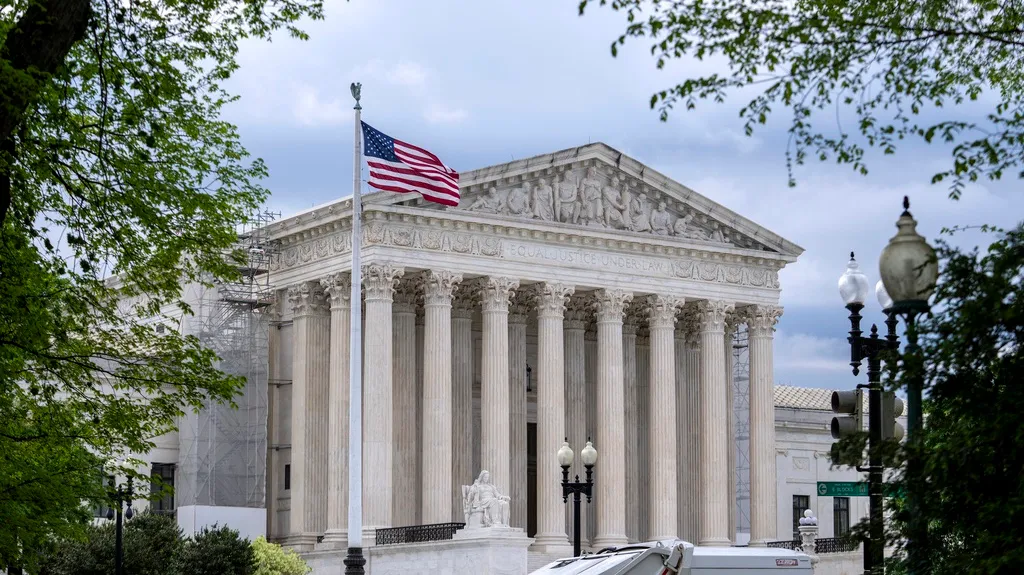March 6, 2011
How High School Proms Became Battlegrounds for Gender Identity Rights
Conswella Bennett READ TIME: 7 MIN.
LGBT teens are like all other teenagers trying to make their way through that rite of passage known as the American high school. They want to be accepted and they want to be able to participate equally at school ceremonies such as homecoming and the prom.
The royalty "crowned" at these events has become in our time a source of controversy, thanks to a handful of brave students who are challenging gender norms. The result has been lawsuits, some shameful shenanigans (see Mississippi), and some very gratifying results for our side.
One school, for example, recently made headlines by deciding to do away with the traditional gender roles surrounding their prom and will hold a gender neutral affair in May. That decision came after a transgender student at Mona Shores High School in Michigan, Reed Oak, was voted by students to serve as its homecoming king earlier in the fall, but school officials denied him that crown.
"Reed is a popular student at Mona Shores who has identified as a male from a very young age," the American Civil Liberties Union and the ACLU of Michigan wrote in a press release. "His male identity is widely accepted by his teachers and classmates. He was permitted to wear a male uniform for the marching band and will wear a male cap and gown for graduation. However, after his classmates voted for him to serve as homecoming king, the school district said that Reed could not be chosen because his school records indicate that he is female."
The decision was hardly greeted with universal applause. Since the decision a few weeks ago, some of the school's students and a few blogs have been in an uproar over the school's decision to steer away from tradition to hold a gender neutral prom court.
According to FoxNews.com, Sam Kuiper, who graduated from Mona Shores High School in 2009 and played in the school's marching band alongside Reed, said he doesn't think a "permanent change" to prom traditions was necessary. "It should be flexible enough to be changed on a case-by-case basis," Kuiper wrote.
Kuiper also said he hopes other nearby school districts can learn from the incident. "Other high schools should take note of how the situation was handled by Mona Shores High School and possibly shape their policies around our end result."
Another student, senior John Skocelas, told Wood TV, a local TV channel, he thought it was wrong to change the policy based on one student. "It's our vote," he told the NBC affiliate. "It's not what the school wants, it's what we want."
"In all honesty, I strongly disagree with it," wrote one student who asked not to be identified. "I do not think it is right for the school district to make a decision like this based on one student."
"The district made this decision because of the chaos that was started by the incident at homecoming last fall," the student added. "I feel that they are not doing this to be politically correct, but simply to avoid negative press -- and the negative responses that were generated last fall." The student suggested that the policy be implemented for "this year only," since Reed is a senior.
'To Deny or Ignore Gender Is Just Plain Stupid'
"Oak is a popular student who is accepted by his peers for who he is," Jay Kaplan, ACLU of Michigan Lesbian, Gay, Bisexual and Transgender Project staff attorney, told EDGE. "He had no reason to expect to be treated differently by school officials. We're glad that the school district recognizes that its treatment of Oak was wrong, and that it has instituted more inclusive policies."
Mona Shores High School in Muskegon, Michigan will allow students to vote for a "prom court" this spring rather than a prom queen or king. The ACLU, with assistance from the law firm Sidley Austin LLP, sent the school a letter following the homecoming vote expressing concern about suppressing free speech and discrimination based on gender identity. Voting for the upcoming prom court will be open to all juniors and seniors.
Although it's the students who are mostly affected by the decision, some adults have felt the need to weigh in on the case. Carl Morris, creator of the blog, Heteroseparatism.com, disagrees with the school's decision.
"I don't think that the student should have been allowed to run for prom king. I think that the school was cowardly to bow to political correctness with a "gender neutral' prom," Morris said. "Gender exists, and to deny or ignore gender is just plain stupid.
Morris even created a new word "genderealist," for his absolute point of view. He believes a compromise would be allowing gay students their own prom. Morris, who seems to like his own neologisms, created the word "heteroseparatist" whose meaning is pretty clear: "to fight the growing power and influence of homofascism," he explains.
Long before Reed's case, however, there have been other LGBT students taking a stand and fighting for their right to be involved in their schools activities without denying who they are as individuals.
Just a few months ago, a lesbian couple in Minnesota fought for their right to walk a school processional together. Sarah Lindstrom and Desiree Shelton fought the Anoka-Hennepin School District and Champlin Park High School for the right to walk together as a couple as part of the royalty court for the Snow Days Pep Fest.
Students voted onto the royalty court traditionally enter the assembly in boy-girl pairs. After Lindstrom and Shelton, both 18, were elected, school officials announced a change in procedure: Court members would walk in individually or accompanied by a parent or favorite teacher. But Lindstrom and Shelton fought the changes in procedure and the parties were able to arrive at an arrangement that enabled the two to walk together in the processional.
The most celebrated and notorious such case involved a lesbian who waged a battle in the deepest, most conservative part of the Deep South.
It was just last year that Mississippi teenager Constance McMillen garnered international media attention for her fiercely fought battle with the Itawamba County School Board. She wanted to take her lesbian partner and wear a tuxedo to the Itawamba County Agricultural High School prom in nearby Tupelo.
The school board decided to cancel the prom. Parents then went ahead and independently put together their own prom for the students at a private venue. McMillen and her partner attended what was slated as the school's prom with a tiny group of other misled students. Just to make sure where McMillan stood with them, the parents had told the only other kids to attend this prom the special needs students.
In N.Y.'s Hudson Valley, a Small Triumph
There is at least one school where the big news was ... no news at all.
Another student who can identify with Reed and McMillen is Charlie Ferrusi. Ferrusi and his friend, Timothy Howard, both openly gay, attended Hudson High School in Hudson, N.Y., a once down-at-the-heels blue collar town south of Albany that in recent years has been revived by second-home buyers from New York City, many of them gay.
Ferrusi and Howard decided to run for the crown and tiara during the same time that McMillen was fighting for her right to attend her prom with her girlfriend.
In an interview with EDGE, Ferrusi said he could relate to the Reed case. Ferrusi recalled an earlier case at his school in 2008. A male student was denied the opportunity to win prom queen at Hudson High School. Ferrusi said the student's name was not on the ballot but that students wrote in his name.
Two years later, Howard and Ferrusi won the coveted crown and tiara after fighting to have the school's rules changed to have an open ballot so that anyone could vote for anyone.
Ferrusi said he thinks the idea of holding a gender neutral prom court or other school activities is the way to go. "I think the Prom King and Queen thing is an outdated tradition, the articulate young man said. "I like the idea of gender neutral, because you can choose whoever you want and you don't need to make any news out of it. The students just choose two people to represent the class and school. And I think that's the real point in it all."
Ferrusi said before he and Howard decided and were allowed to run for the prom court, they tried to change the name to something like Prom Royalty. "Nothing really worked well with our advisers," he said. "So we left it and Tim (Howard) won queen, which was a slight issue, but it was taken very well by students and the board of education."
SUBHEDE: In the Future, Gender-Neutral Proms?
While Ferrusi is pleased with Mona Shore's decision to hold a gender neutral prom and hopes other schools will follow suit to ensure that LGBT students are allowed to participate in all traditional school activities, he was saddened that Reed was not allowed to receive the title of Homecoming King in the fall.
"It's a shame that Mona Shore High School didn't allow Oak to take the crown. I believe the board of education should have no say in who wins," he noted. "This is the student's decision and they should decide who represents their class. It shouldn't matter what gender you are, what color you are, or what sexual orientation you are. It's the student's decision and for the board not stand by it is a shame."
The ACLU agrees. "Schools should provide a welcoming and safe environment for all students, and should be free from discrimination," said John Knight, senior staff attorney with the ACLU LGBT Project. "We hope that Oak -- and all of his classmates -- will not have to worry in the future about feeling left out because of who they are."
"A gender neutral prom is a step in the right direction, and I think a lot of great things will come from it," Ferrusi added of Mona Shore's decision. "A gender neutral prom will allow a student body to express its true diversity and acceptance. I am a proud supporter of Oak, and I am glad he has succeeded in making changes within his district."
According to Ferrusi, "It's not the titles of Prom King and Queen that are important. It's the fact that your classmates chose you because of who you are."
He is optimistic that other LGBT students will stand up and fight for their right to be included in various activities and school functions. "Ignore people telling you who you should be and what you should do," Ferrusi advised. "The world is changing, don't be afraid to try and make a difference. Don't ever listen to the word 'no' and don't ever stop fighting for what's right."






